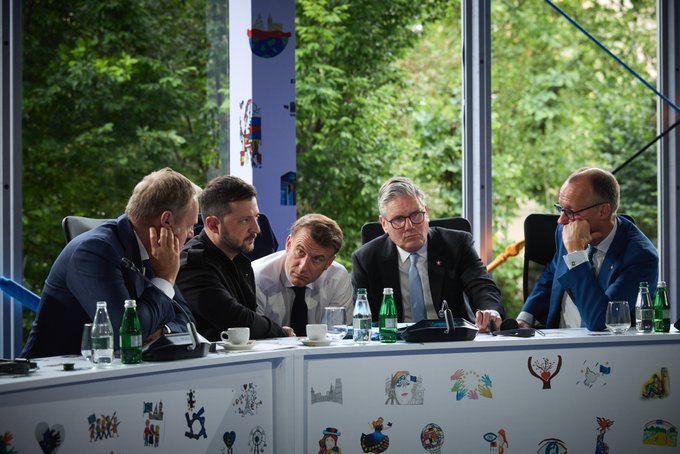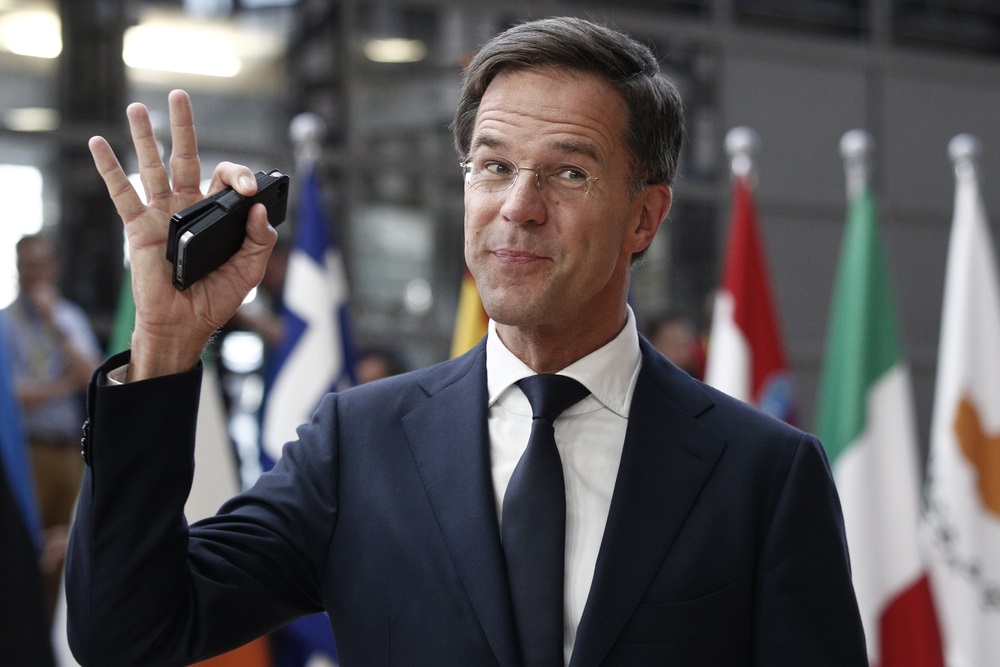EU Is Going to Have Their NATO War Against Russia – With or Without President Trump – And It Gets Worse
Let’s put the events of the last 100 hours into context.
On Monday and Tuesday, Russian oil refineries in NATO countries Hungary and Romania suddenly, and simultaneously, have mysterious explosions and catastrophic fires {citation}}. On Wednesday, NATO head Mark Rutte comes to visit President Trump in the White House, and at the end of the day, the same Russian company, Lukoil, whose refinery exploded in Romania, suddenly becomes sanctioned by the U.S. Treasury {citation}. These events are not disconnected.
President Trump then disputes a Wall Street Journal report {citation}, further saying he did not give approval, nor does he know where NATO long-range missiles are coming from that were launched from Ukraine into Russia {citation}.
Alarmingly, both the Wall Street Journal and President Trump are seemingly correct.
President Trump did not give authorization; however, he did cede authority to NATO to make independent decisions about long-range missiles. The U.K. provided the British storm shadow missiles, and Ukraine launched them with NATO support for targeting deep into Russia.
President Trump saying, “wherever they may come from,” is alarming in itself. We all know that British PM Starmer, French President Macron, German Chancellor Merz and NATO Secretary Mark Rutte are all in alignment to push NATO into a direct conflict with Russia using the non-NATO state of Ukraine to do it.
The frustrating part is not the obtuse deflection by President Trump – perhaps he really doesn’t know – but rather the alarming issue of questioning whether President Trump is getting accurate information from the U.S. intelligence apparatus to make sound decisions. President Trump has abdicated the conflict decision-making to the NATO “coalition of the willing”, while the USA remains in NATO as a sideline observer.
 The European members of NATO want war with Russia. President Trump does not want war with Russia, yet remains tied to NATO as they push toward war with Russia. This is not going to end well.
The European members of NATO want war with Russia. President Trump does not want war with Russia, yet remains tied to NATO as they push toward war with Russia. This is not going to end well.
The U.S. Treasury sanctions against Russian energy companies is not going to cause Russian President Vladimir Putin to change his mind on his strategic objective of taking the Donbas region in Ukraine as a buffer zone against NATO encroachment.
WASHINGTON — Today, the U.S. Department of the Treasury’s Office of Foreign Assets Control (OFAC) is imposing further sanctions as a result of Russia’s lack of serious commitment to a peace process to end the war in Ukraine. Today’s actions increase pressure on Russia’s energy sector and degrade the Kremlin’s ability to raise revenue for its war machine and support its weakened economy. The United States will continue to advocate for a peaceful resolution to the war, and a permanent peace depends entirely on Russia’s willingness to negotiate in good faith. Treasury will continue to use its authorities in support of a peace process.
“Now is the time to stop the killing and for an immediate ceasefire,” said Secretary of the Treasury Scott Bessent. “Given President Putin’s refusal to end this senseless war, Treasury is sanctioning Russia’s two largest oil companies that fund the Kremlin’s war machine. Treasury is prepared to take further action if necessary to support President Trump’s effort to end yet another war. We encourage our allies to join us in and adhere to these sanctions.”
Today’s action targets Russia’s two largest oil companies, Open Joint Stock Company Rosneft Oil Company (Rosneft) and Lukoil OAO (Lukoil), which are now designated. Rosneft is a vertically integrated energy company specializing in the exploration, extraction, production, refining, transport, and sale of petroleum, natural gas, and petroleum products. Lukoil engages in the exploration, production, refining, marketing, and distribution of oil and gas in Russia and internationally.
Rosneft and Lukoil are being designated pursuant to E.O. 14024 for operating or having operated in the energy sector of the Russian Federation economy.
Additionally, OFAC is designating a number of Russia-based Rosneft and Lukoil subsidiaries, a list of which is available in Annex 1 below. All entities owned 50 percent or more, directly or indirectly, by Rosneft and Lukoil are blocked pursuant to E.O. 14024, even if not designated by OFAC. (read more)
It was Lukoil’s operation in Romania that exploded on Monday, and it was Rosneft oil that was being processed at the refinery in Hungary where the explosion took place on Monday night into Tuesday. Then, suddenly on Wednesday, President Trump, NATO General Secretary Mark Rutte and Treasury Secretary Scott Bessent trigger sanctions against Rosneft and Lukoil.
President Vladimir Putin is not a pretending man.
The Russian Federation President can clearly see what NATO (sans Trump) is trying to do, even if the advisors around President Trump are not being fulsome with their information about what NATO is trying to do.
Fubar. All of it.
[…] – The unannounced U.S. move to enable Kyiv to use the missile in Russia comes after authority for supporting such attacks was recently transferred from Defense Secretary Pete Hegseth at the Pentagon to the top U.S. general in Europe, Gen. Alexus Grynkewich, who also serves as NATO commander. (more)







Post a Comment